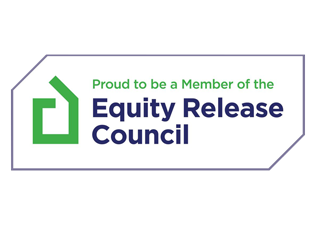-
Property website Rightmove has upgraded its growth forecast for 2020 – but only to 2%
-
One North East agent predicted price growth of 5% in 2020, but this is modest compared to recent booms
-
Property experts remain cautious on house prices but say election could bring a better chance to move
-
Estate agents hope the election win will bring more properties to market, as homes for sale have dwindled
The UK housing market has been slowly suffocated over the past three years due to the interminable uncertainty — but now, estate agents are hoping for New Year fireworks. It is hoped the emphatic Conservative general election majority could now herald a clear path forward, whether you like its direction or not. Estate agents have certainly tried to whip up some excitement, but others suggest they are getting ahead of themselves.
Property website Rightmove has already upgraded its growth forecast for asking prices in 2020, but that was to just 2%. The slight shift up was because it expects the result to give movers ‘a window of certainty’. For many people such modest gains would be very welcome, as an uplift in confidence that made homes easier to buy and sell, combined with prices only rising very gently – at a pace that is slower than inflation or wage growth – would make buying a home more affordable.
Prior to the EU referendum in June 2016, the annual growth rate of property prices was more than 8%. It has steadily declined ever since: the latest Office for National Statistics (ONS) data shows prices rose by just 1.3% in the year to September. Both buyers and sellers have been reluctant to make a move, fearing prices could soar or plummet at any moment. Meanwhile, homes coming to market have dwindled for fear they will sit on the shelve for months.
It’s hardly surprising then that last week’s election did spur an immediate surge in estate agent share prices, with Purplebricks and Savills up 9% and 13% respectively by the end of Friday. The market is now hoping to capitalise, and one agent in the North East has even predicted price growth of 5% by the end of 2020. But by the standards of the high property inflation of recent years even this is hardly spectacular – and much of the North East’s property market is still in the doldrums after the financial crisis.
Others are more reticent. Savills forecasts nationwide growth of just 1% because of doubts over Britain’s trade deal with the EU and squeezed household finances. That’s less than forecast consumer prices inflation and lower than wage rises, which for many would be very welcome news as it would mean houses get more affordable So, if the mood is one of cautious optimism, what should you do if you are looking to make a move in 2020 and which regions might prove most profitable? We spoke to estate agents nationwide to find out.
A NEW NORTHERN POWERHOUSE
The housing market in the North has generally fared better than that in London and the South East in recent years. The highest annual growth was recorded in the North West, at 2.8% to September this year. Close behind was Yorkshire and the Humber, where prices rose by 2.2%. The North East has been steady at 2%, where major towns and cities such as Middlesbrough and Newcastle have led the pack, with increases of 7% and 6.7% respectively.
But even growth areas have felt the pinch of late. Lily Jeffels, senior negotiator at Reeds Rains estate agents in Newcastle, says instructions have dropped dramatically this month and are half what they were this time last year. The firm has also lost around 40% of its stock as a result of vendors holding out in the face of uncertainty. But Ms Jeffels hopes last week’s general election marks a turning point. ‘I think with this result, we are seeing a bit of a change, even today’ she says, speaking the day after the Conservatives secured their biggest majority since the 1980s.
‘We had three listings yesterday and one has already gone through. We had a lot of instructions waiting in the pipeline, but no one wanted to list until the outcome of the election. I feel like the next three months are going to be a bumper period.’ Average house prices in Newcastle are £171,374, compared to the average of £251,000 across the nation. Ms Jeffels says the city has yet to hit its ceiling and predicts prices will grow by a further 5% over the course of 2020.
Meanwhile, prices in Scotland increased by 2.4% in the year to September, and Savills predicts a further 2% rise in 2020.
ON THE MOVE IN THE MIDLANDS
The Midlands, on the other hand, may have peaked already. Last year, Money Mail reported how property prices in the region were outstripping the rest of the country. In 2018, growth was around 6%, dwarfing the usual hotspots of the South East and East, which rose by 1.7% and 2% respectively. London, meanwhile, was the only region to be in decline, with prices falling by 0.3%.
Commentators pointed to the number of big firms relocating to England’s heartlands. HSBC had moved its UK head office to Birmingham, while Nestle had just announced the construction of a new £55 million distribution centre in Leicestershire. HS2, a high-speed railway that will connect London, Birmingham, the East Midlands, Leeds and Manchester, was also said to have boosted prices.
Savills predicted they would continue to rise by another 3% in 2019, compared to a national average of just 1.5%. In reality, growth in the East Midlands slowed to 0.1% in the year to September, while the West Midlands has staggered along at 1.6%. The Brexit ennui and parliamentary paralysis that had burst London’s property bubble appears finally to have taken hold in areas that once proved resilient.
The historic market town of Daventry in Northamptonshire, for example, saw prices grow by 12.1% in the year to November 2018, the fourth strongest in the UK. But it has now gone into reverse, with prices falling by 6.2% in the year to September 2019, the fourth weakest. Experts say that while the region has continued to enjoy a steady rise in movers who have been priced out of London, this has pushed out local buyers.
Last year, 45,950 Londoners left the capital and moved to the Midlands, up 2.4% compared with 2017, according to ONS internal migration figures. But the average home in the Midlands now costs more than seven times the average annual salary of local workers. Aneisha Beveridge, the head of research at Hamptons International, says ‘Affordability is a key driver for many first-time buyers moving and buying in the area. London leavers priced out of the capital’s housing market are able to buy more for their money in the Midlands, future-proofing further moves and the costs associated with them. However, for local buyers, affordability is now being squeezed. The area has also been hit by Brexit uncertainty, with a slowdown in manufacturing and the threat of redundancies — all of which has impacted housing demand.’
As ever, there are pockets that buck the trend. Richard Jones, a partner at Jackson-Stops, says performance is ‘geographically specific’. He says his two offices in Northampton and Woburn, near Milton Keynes, have fallen in and out of favour. ‘Over the past few years, it seems to be that when one is performing well, the other isn’t, and vice versa’ he adds. ‘But we have found the top end of the market to be especially strong. Last month, we had three cash buyers fighting over a £1.25 million property in Great Doddington. In Lillingstone Lovell, in Buckinghamshire, we had two buyers fighting over a £2.25 million home. Both are now under offer at considerably more than that. If the right property comes on to the market at the right time, there are always people out there just waiting for that trophy home.’
Mr Jones says a common theme nationwide is the concentration of ‘active buyers’ — as opposed to window shoppers. ‘Instead of having ten buyers to one property, it’s more like two or three to one, but those buyers are genuine, quality buyers. It’s actually a good market to be trading in. You’re not manic, it’s more relaxed.’
Nottingham-based chartered surveyor David Hammond is also optimistic that a New Year ‘bounce’, along with a period of relative political stability, will get the market moving again. ‘Housebuilders will get cracking and the markets will pick up’ he says. ‘We are going to see more activity, but if there is more supply, that might temper the rise of house prices.’
GUESSING GAME IN THE CAPITAL
London is a law unto itself. Prices are down 0.4% and have been falling over the year each month since March 2018.
Savills predicts prices will fall a further 2% in 2020 as a possible increase in interest rates squeezes affordability at the point of getting a mortgage. But it remains a guessing game. Rightmove says the London market appears to have bottomed out in the second half of 2019 and is forecasting an annual rise in the capital for the first time since 2016, albeit at a modest 1%. It says price recovery is aided by a ‘concerning lack of new sellers’, down 2% in the second half of 2019, compared to last year.
Director Miles Shipside says political clarity should release ‘pent-up demand’ in the spring, but points out that punitive taxes and poor affordability will continue to act as a drag. John King, chairman of Andrew Scott Robertson, which operates around Wimbledon and Merton in South West London, agrees. He says that while the London property market has been ‘caught up in the political scene’ for the past three years, he believes the principal restraints are stamp duties and professional fees. ‘I think people’s perceptions will be on the cost of living and the cost of moving home. Until that is rectified — and we see a much greater number of homes constructed — next year is going to be difficult. The price range between £1 million and £2 million has been fairly consistent because there will always be families wanting to move into that market if they can afford it, but beyond that, stamp duty just becomes prohibitive.’
While campaigning to be the next Tory leader, Boris Johnson said he would consider scrapping stamp duty for properties under £500,000, but he is not expected to do this in the upcoming budget.
GOOD NEWS FOR FIRST-TIME BUYERS
A sluggish market has provided opportunities for bargain hunters, particularly first-time buyers. Mortgage providers have been falling over themselves to offer the cheapest deals in a bid to attract wary borrowers, and it seems to be working. Data released yesterday by UK Finance shows there were 32,260 new first-time buyer mortgages completed in October 2019, 2.8% more than last year. Homemover mortgages were also up 4.2%. But new remortgages were down 20.8% and buy-to-let mortgages fell by 1.5%, perhaps a reflection of the growing restrictions and expenses faced by UK landlords.
Sam Harhat, head of financial services at Andrews Property Group, says he expects an uplift in transaction levels in 2020 in the wake of the election. ‘A lot of prospective buyers and sellers have been sitting on their hands for the past two to three years and we expect them to enter the market in earnest in 2020’ he adds. ‘The thumping win by Boris Johnson will bring back the aspirational buyers and sellers that have been lacking since the EU referendum result. First-time buyers could be particularly busy as they seek to act before prices rise beyond their reach. ‘The fact that borrowing rates remain so low and are unlikely to rise as we formally exit the EU will further boost the number of buyers and sellers in 2020.’
WHAT WILL THE BUDGET BRING?
While voters have come to some sort of conclusion on the country’s future, the trajectory of the housing market remains unclear. Property expert Henry Pryor believes a house bought in January will be worth 3% less by December. He points to a litany of concerns. March’s budget is likely to see an extra 3% on stamp duty for foreign buyers, EU mandarins say that a trade deal by the end of 2020 is unlikely, and interest rates are forecast to rise by 0.25% to 1%, according to Savills. ‘We’ve had our face in the punchbowl for too long’ he says. ‘People think that house prices are about supply and demand, but it’s about availability of credit. Are interest rates going to go down? Will mortgage rates get better? What is actually going to happen that will generate higher prices? People may hit the New Year full of the joys of the festive spirit, but they will end it disappointed.’
Others are heralding a Boris bonanza. Trevor Abrahmsohn, who runs an upmarket agency in North London, says he secured purchases from buyers in Asia and Eastern Europe worth £33 million within hours of the election result. The buyers had been awaiting political clarity before going ahead. Jeremy Leaf, an estate agent in Finchley, North London, and a former residential chairman of the Royal Institution of Chartered Surveyors, says that while prices will not ‘rock ‘n’ roll’, there should be an uptick in activity. ‘We don’t expect fireworks, but demand cannot remain pent up indefinitely.’
Of course, life goes beyond Brexit and the Boris ‘bounce’. Families need to upsize or move closer to schools, while death, debt and divorce will always keep the market moving.
[Source: Mail Online, 18 December 2019]
Want to know more? Get in touch!







